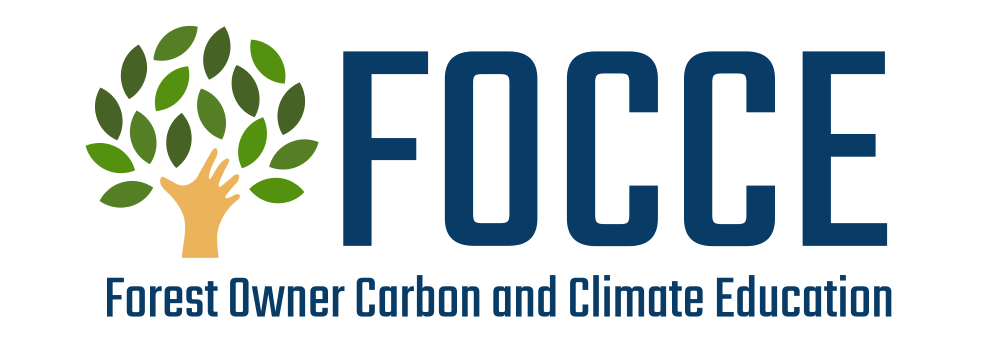The Forest Owner Carbon and Climate Education (FOCCE) program is a collaboration between thirteen university extension divisions and three USDA Climate Hubs.
Goal 1: Facilitate basic understanding of forest carbon and climate issues, with a special focus on incentive opportunities, such as forest carbon markets and government programs.
Goal 2: Provide access to new and existing tools and resources to help guide planning and structured decision-making.
Goal 3: Foster community around carbon and climate topics so participants continue to build knowledge through collaborative learning and collective engagement.
Goal 4: Reach underserved categories of forest owners who are less likely to participate in the carbon economy.
Goal 5: Advocate for more diverse and inclusive carbon incentive strategies by presenting outcomes to industry and government leaders.
Our Values
- Distribute content that is grounded in interdisciplinary science.
- Be unbiased in the materials and information we present.
- Prepare landowners and stakeholders to engage in forest management and the carbon economy.
- Promote systems thinking so landowners can independently navigate our changing forests and the carbon economy.
- Address the values, needs and conditions of the forest owner community and those who rely on this community.
- Recognize and respect diversity in landowner capacity and motivation.
- Recognize and respect diversity within the carbon economy and the government agencies that work with private landowners.
- Be inclusive and acknowledge interconnections between social and ecological justice.
- Foster agency within stakeholders to advance community-level action.
- Build and sustain a community of practice around climate resilience and private forest lands.
Programs launching in 2023
Online training modules and extension articles will deliver science-based content to self-directed learners. Complementing this will be a series of live expert panel discussions and a library of tools and resources to help guide planning and structured decision-making.
Peer education programs in participating states will train forest owners to connect with their peers to deliver the content they learned through the online program. This approach leverages shared values in order to reach owners who otherwise may not become involved in forest carbon and climate change issues.
Professional development training program will be established in coordination with designated professional associations. Trainings will prepare professionals to serve clients who are interested in addressing forest carbon and climate change issues.
